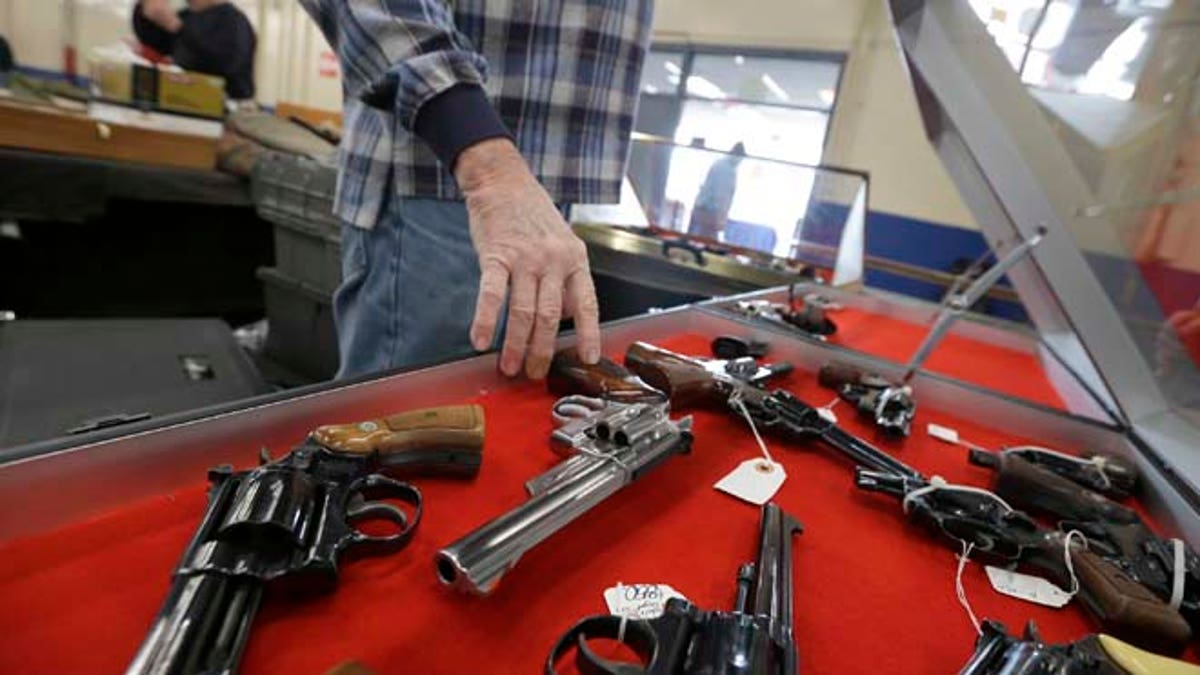
Feb. 6, 2015: Gun salesman arranges handguns in a display case in advance of a show at the Arkansas State Fairgrounds in Little Rock, Ark. (AP)
Supporters of tighter gun controls are testing a new approach in their battle to cut firearm deaths: adding gun curbs for people linked to domestic violence.
A pending bill in South Carolina would require someone convicted of a domestic-violence charge to turn in his or her firearms to the county sheriff. Legislation proposed in Arizona would prohibit someone charged with domestic violence from possessing a gun while out on bail.
A measure in Missouri would add “dating partners” to those covered by domestic-violence laws and the gun bans that attach to them.
In all this year, lawmakers in at least 12 states have proposed legislation that would make it harder for people accused or convicted of domestic-violence charges to get or keep a firearm, according to the Law Center to Prevent Gun Violence, which tracks state gun bills. The push comes after six states passed new gun laws in 2014 related to domestic violence, including two—Louisiana and Wisconsin—with Republican governors.
VIDEO: Actor Will Smith says this is a gun culture
The bills are part of a concerted move by gun-control groups including Everytown for Gun Safety, the group backed by former New York City Mayor Michael Bloomberg , and Americans for Responsible Solutions, the group formed by former Arizona Rep. Gabrielle Giffords , who was shot in the head outside a supermarket near Tucson four years ago, and her husband.
Gun-control backers have largely focused on the statehouses after failing to win new federal legislation in the wake of the 2012 massacre in Newtown, Conn. So far, they have had mixed success.
The domestic-violence gun bills have been pushed often over the objection of gun-rights groups like the National Rifle Association who say they are unnecessary and, in some instances, violate gun-owners’ rights.
The focus on domestic violence, an issue that reaches voters that might not otherwise engage in the battle over guns, “shows a strategic sophistication on the part of the gun-control folks,” said Adam Winkler, a Second Amendment expert and law professor at the University of California, Los Angeles. Domestic violence “is an emotional issue that people are willing to fight for.”








































